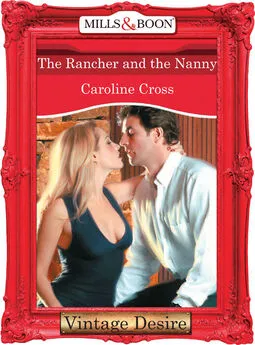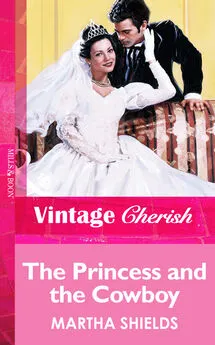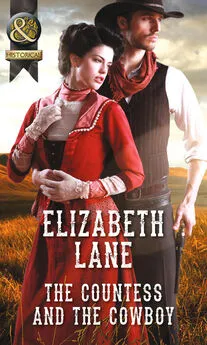John Creasey - The Toff and The Sleepy Cowboy
- Название:The Toff and The Sleepy Cowboy
- Автор:
- Жанр:
- Издательство:неизвестно
- Год:неизвестен
- ISBN:нет данных
- Рейтинг:
- Избранное:Добавить в избранное
-
Отзывы:
-
Ваша оценка:
John Creasey - The Toff and The Sleepy Cowboy краткое содержание
The Toff and The Sleepy Cowboy - читать онлайн бесплатно полную версию (весь текст целиком)
Интервал:
Закладка:
“I called Pam’s father, and can you imagine what he said?”
“What did he say?”
“He said if I go anywhere near his daughter he’ll horsewhip me.”
Rollison, smiling faintly, said: “I would like to see him try,” and rested a hand on the bony shoulder. “It’s bad enough as it is, I know, and worse because you can do nothing. All the same, I would prefer you to stay here. You might hear from a newspaper which really has a clue where we can find King”
Scowling, Tommy said: “You want to know some-thing, Toff ? I’m not staying in this apartment for ever.”
Rollison gave a mock shudder and said: “Heaven forbid!”
Tommy was actually laughing when Rollison went out.
Police and a few newspapermen were still in the street, and the windswept rain brought a faint odour of burning from the house which had been destroyed. A small fire tender and some firemen were outside the house. Rollison evaded the newspapermen but not the police, and went to the mews garage where the battered Bristol had been taken after the fire. The engine started at a touch, and he drove to Piccadilly and then through the heart of London to the East End. The heavy rain and gusty wind made driving unpleasant. He kept a police car in view in his driving mirror, and had no doubt that policemen along the route were on the alert ‘for him and would report his progress to the Yard’s Information Room. Once through the narrow streets of the City, past the great banking houses and the insurance companies, the Bank of England and the Stock Exchange, he drove through surprisingly light traffic through Aldgate and then the Mile End Road.
The police car kept close behind.
Policemen waved him on.
Soon he was in a section of old London’s dockland, where narrow streets of tiny houses without gardens looked drab as well as dank. At last he turned a corner where there was a big Victorian public house, The Blue Dog; an inn sign with a blue greyhound on it swung and groaned in the wind. He pulled round the corner, to a wooden building standing back from the road, emblazoned:
EBBUTT'S GYMNASIUM
Here, over the years, Bill Ebbutt had trained some of the best boxers of the British ring.
A little man with his coat collar turned up against the rain came hurrying towards Rollison, peaked cloth cap sodden.
“In the pub, Mr. Ar!” he called, and led the way to the backyard of the Blue Dog where huge barrels and stacks of beer bottle crates made a kind of maze. The back door opened as they appeared and Ebbutt stood beaming at his visitor, then gripped his hand.
“How’s the conquering hero this morning?” he inquired in a wheezy whisper. “Come in, Mr. Ar.” He led the way to a parlour at the back of the main bars. On the table were two tankards, in a corner a wooden barrel, marked XXXX — the best beer brewed in Britain, Ebbutt claimed. It stood on a trestle made of unpolished oak.
As he turned the faucet, and raised and lowered the tankards to get the proper head of beer, he said:
“Lil’s asleep — sprained her ankle and the — doctor gave her a sedative.” He handed Rollison his tankard and raised his own, his small eyes sparkling in anticipation. “Here’s to the conquering hero,” he toasted. “Blimey, that was a job you did last night, Mr. Ar.”
“Bill,” said Rollison. “I’m sure you didn’t ask me here just to tell me how brave I am.”
Ebbutt’s expression changed. He drank more beer, wiped his lips with the back of his hand, and slowly shook his head. Rollison waited in the now familiar mood of disquiet.
“Mr. Ar,” Ebbutt said, “I don’t trust that Pamela Brown.”
“Oh,” said Rollison, taken completely by surprise.
“I don’t trust her no farther than I can see her,” Ebbutt went on. “She’s a living doll all right, they don’t come any prettier and I don’t say that when I was younger I wouldn’t have liked a date or two with her. But I don’t trust her an inch.” Ebbutt drank again and repeated the motion of wiping his mouth with the back of his hand. “She did a job on old Sonny Tucker, two or three years ago. He’d been out on the old razzle-dazzle and his wife wanted evidence. You know the kind of thing. Pamela Brown got everything out of the poor old geezer, where he’d been, who he’d been with.”
“Did his wife divorce him?”
“Divorce? Who said anything about divorce? Old Sonny’s been under his wife’s thumb since that very day.” Ebbutt squeezed his huge bulk in a shabby old armchair, and went on above the wheezing in his chest; it was almost as if there were two men inside him; or Ebbutt and his echo. “Well, your American buddy has fallen for her hook, line and sinker, hasn’t he?”
“How do you know?” asked Rollison.
“My boys keep their eyes open,” Ebbutt said, “and all I can tell you is that she’s up to no good. You take my word for it.” Ebbutt drained his tankard before going on: “I couldn’t come and see you, seeing as Lil was laid up, and telephones ‘ave ears.”
Rollison said slowly: “And your boys have eyes.”
“That’s right,” said Ebbutt, clasping the arms of his chair with fat hands. His tone and his mood changed again. “All I can say, Mr. Ar, is you be very careful where those Browns are concerned. They’re dynamite.”
The word seemed to hover in the air. There was no doubt Ebbutt had used it deliberately; the steady gaze, the sombre expression, told Rollison that. Pamela Brown was dynamite.
“Bill,” Rollison said, “are you telling me that you seriously think the Brown family could be behind the bombing?”
“All I know is that I wouldn’t trust any one of them an inch, and I wouldn’t trust your American friend with them, either. Beauty’s only skin deep, that’s what I always say.” Then Ebbutt leaned forward, both hands outstretched, and his manner as well as the tone of his voice were beseeching.
“Be careful, Mr. Ar. That wasn’t funny last night. You was about ten seconds, maybe less, between staying in one piece and being blown to smithereens. I don’t want nothing to happen to you, Mr. Ar. It turned me inside out when I realised what was happening.”
Ebbutt paused, then spread his hands, then added with great depth of feeling:
“Can’t you give this one up. Get out while you’ve still got a whole skin? A hell of a lot of people would breathe a lot easier if you’d drop out. Mr. Ar. I’ve never said a truer word.”
* * *
First Grice. Then Ebbutt.
If he didn’t know them better he would think they had been in collusion over this; if by chance they had then each believed beyond all doubt in the acuteness of his danger.
But even if he wanted to, how could he ‘give this one up’? He didn’t really know what it was, yet in all that had happened there must be the vital clues which, when seen and properly understood, would explain everything.
Why had the Browns told Tommy Loman to go to him? Clearly, so as to involve him. Was Pamela’s ex-planation’ right or was there another? Was there the slightest possibility that there had been a faked attack on her by one of her family? If so, what possible reason could there be?
Or would Brown Senior threaten to choke the life out of him, too?
Rollison, sitting at the wheel of the Bristol in dense traffic near the Bank of England, with the stench of car exhaust fumes and the growl of car engines all about him, went very still. The car behind him honked, and he realised a light had turned green. He drove on, going towards Blackfriars Bridge and the Embankment, the quickest way to Fleet Street. He found a parking place between Evening News delivery vans and as he did so a car drew up alongside him.
His heart lurched until he realised that the driver was Grice’s man.
“Where are you going, Mr. Rollison?” he asked, severely.
“To the Globe newsroom — I want to find out if they’ve any news of King.”
“If we lose you we can’t be responsible for what happens.”
“No,” agreed Rollison. “I hereby absolve you. Why doesn’t one of you come along and hold my hand?”
“That’s exactly what we’ll do,” the driver replied, and his companion got out on the other side.
Rollison and a massive, black-jowled detective officer walked together along narrow streets, past huge, old-fashioned buildings, to the Globe offices in a side street. They went upstairs to the newsroom together and the Yard man looked dubious when the News Editor, an old acquaintance, carried Rollison off to a sanctum sanctorum, small, choc-a-bloc with hide armchairs, and a huge desk along one side.
“Rollison,” said the News Editor, whose name was
Green, “we have undoubtedly narrowed down the search for this actor, King.”
Rollison’s heart began to beat fast.
“Beyond any doubt?”
Green, a very thin, very sharp-featured man with a high dome of a forehead, answered without hesitation:
“Beyond doubt. He’s been in a television series re-cently and one of the cameramen on the crew which makes the show lives in Clapham. He’s seen King drive to Clapham Common several times. A woman who watches the show regularly lives in a flat in a house overlooking Clapham Common; she says she saw King go into a corner house opposite the Common yesterday morning. He’d been there two or three times before. She’s certain because she’s been dithering about whether to waylay him and ask for his autograph.”
Rollison asked, bleakly: “Any other evidence?”
“We’ve had a greater concentration of reports that he’s been seen in the Battersea and Clapham Common area than anywhere else,” Green told him. “And so have the Echo and the Record. I don’t think there’s much doubt.”
“The house is the Browns’ house, of course,” Rollison said.
“Yes.”
“Thanks,” said Rollison. “Give Bill Grice a call at the Yard and tell him I hope to see him within half an hour. It will depend on the traffic whether it takes any longer.”
“I’ll tell him,” promised Green, and as they stood up he went on: “May I add my word to the thousands you must have had about last night? My men who were there were converted from sceptics to convinced Toffophiles in a matter of seconds.”
Rollison made his usual gesture, a self-disparaging wave of his hands in front of his chin. “I’m serious, believe me,” Green insisted. He walked to the lift with Rollison, picking up the massive detective officer on the way. “Be careful, won’t you?” he said as the lift doors opened. “You’re not a man we want to lose.”
18
The Browns’ House
“Now YOU CAN SEE for yourself,” Grice said.
He stood by Rollison’s side in a small room on the same floor of the Yard as his office, in front of a map of London which was pasted on panels and hung on one wall. A door behind them was open and the clatter of typewriters and the chatter of men’s voices came through clearly. A man on one side held a box of colour-headed pins in one hand; as each new report of King having been sighted came in, he stuck in another pin.
By far the largest concentration was in the Battersea and Clapham area, and easily the thickest grouping of brown-headed pins was at a spot on Clapham Common. The common was shown in green, and all the streets nearby in black and white; and individual houses were shown as tiny rectangles or squares. At least fifty pins were clustered near that spot. Some distance away, nearer the heart of London, were other groupings, one near Rubicon House, Chelsea, and one at the converted theatre where the television series was made.
Читать дальшеИнтервал:
Закладка:










